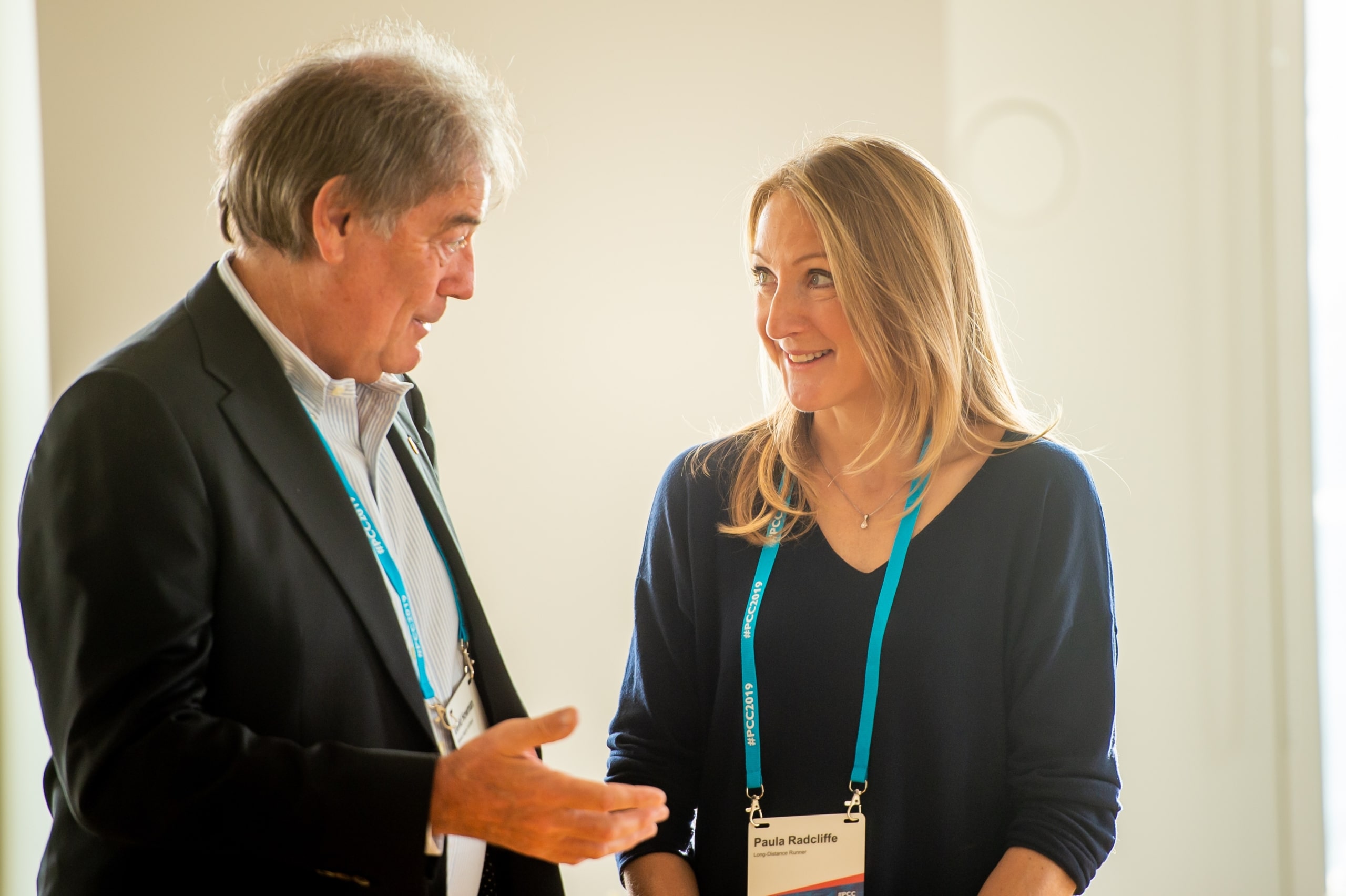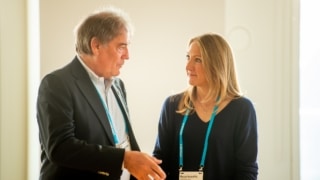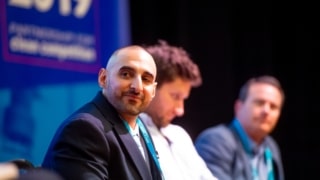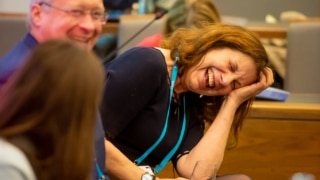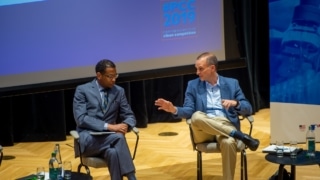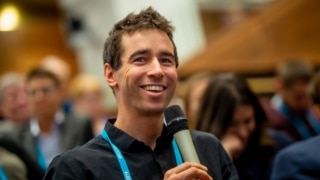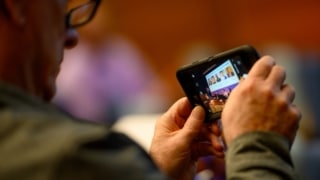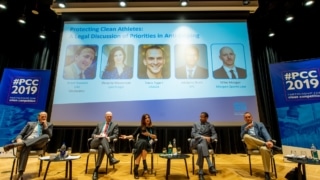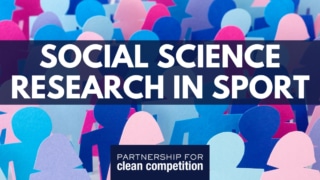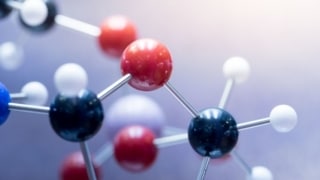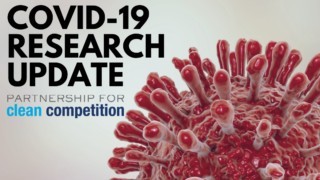Media Release: Time to burst “Bubble Mentality” if Anti-Doping is to ever prosper declares Clean Sport Community
- Former WADA Chief Howman leads chorus of voices from athlete community, anti-doping leaders, scientists, and officials calling for anti-doping “rethink”, citing public fatigue and confusion with current system
- Anti-doping’s top brass cite system’s battered reputation in light of Russian doping scandal and call for creative, ambitious thinking to restore public and athlete faith
- Unstoppable surge in athlete voice dominates debate at three-day event that saw World Record Holder Paula Radcliffe top the agenda
- PCC Conference crunched one of the key topics in anti-doping: the opportunity to learn from different anti-doping programs in professional sport and the Olympic Movement
- Sophisticated testing and collection methods showing great potential being developed at all stages of the research cycle
April 18, 2019, London, England: The Partnership for Clean Competition 2019 Conference wrapped up in London today, with an overwhelming call from the industry’s figures, led by former World Anti-Doping Agency (WADA) Director General David Howman, for the anti-doping movement to burst its bubble mentality if the clean sport cause is ever to prevail. In his opening address on Tuesday, Howman, who led WADA from 2003 – 2016, called on the clean sport community to break out of its current rut saying the time had come to step back and adopt radical thinking if the fight against doping is to succeed. That innovative thinking could start with modernizing testing, a PCC priority that was discussed in numerous sessions throughout the conference, and “to listen to the rising chorus of athletes voices calling for change to the way the system is run at the top. The athlete voice can no longer be ignored”, he added.
Pressing the reset button and adopting a new, innovative approach to all areas of anti-doping were dominant themes throughout the three-day Conference at King’s College London, with speakers agreeing that, in its two-decade history, the anti-doping community had created a “self-sustained bubble” in which layers of heavy regulation and bureaucracy had been created without the significant progress that athletes and the public expect and deserve in the fight against doping. Howman stated: “As someone that has been involved in this cause a long time, I can say the public are showing signs of anti-doping fatigue and confusion. Surely, the time has now come to take a step back and ask ourselves: is this really working?”
A dominant theme throughout the Conference was what one speaker called “the unstoppable surge in the athlete voice calling for change”. This was highlighted through the Partnership for Clean Competition’s decision to place athletes at the heart of panel sessions and topics ranging from The Future of Anti-Doping featuring to, most notably, a dedicated session on athlete rights, Promoting the Athlete Voice in Protecting Clean Sport. At the session, Olympic Champion and WADA Athlete Chair Beckie Scott was joined by Rio 2016 Cycling Olympic Champion, Callum Skinner, Rio Paralympic Games Para-Powerlifter Silver Medallist Ali Jawad, and Director General of the new athlete-led Movement for athlete rights, Rob Koehler. Deemed a highlight of the Conference, the panel spoke of the need for anti-doping and sporting leaders to “finally listen and not belittle” their voice and to reverse the growing disconnect that has emerged between administrators and the international athlete community of late.
Two-time Olympian and World Championships 10,000 Metres Silver Medallist, Kara Goucher echoed the overwhelming athlete-focussed sentiment of the Conference, saying: “What we are now witnessing for the first time ever [across many different countries and many different sports] is athletes really believing they have the power to create change by speaking up as a collective.”
“There has been an un-ignorable shift in athletes really now coming together, and a prevailing feeling that we, the athlete community, have the opportunity to effect change for how anti-doping is run. Until now, we’ve wrongly feared speaking out, but now athletes are being emboldened to put across their view and finally it is starting to be heard,” added Goucher.
One of the unique aspects to emerge from PCC 2019 was the discussion comparing Anti-Doping Programs in Professional Sport and Olympic Sport. On the final day, in the Protecting Clean Athletes: A Legal Discussion of Priorities in Anti-Doping session, the National Football League (NFL)’s Senior Vice President of Labor Policy Adolpho Birch was joined by U.S. Anti-Doping Chief Executive Officer, Travis Tygart, in debating the merits of the Professional Sports anti-doping system versus the Olympic (WADA) system.
Wrapping up the Conference was World Record Holder in marathon running, Paula Radcliffe, who, in a parting message – and in keeping with the Conference theme of rethinking the anti-doping system – cited her own experience and called on leaders to offer athletes the tools they need to prove their innocence. “As I learnt personally, the system doesn’t have a tool for athletes to prove they have not doped. The system is better at proving when an athlete has done something wrong than on protecting athletes who want to prove to the public that they haven’t and that they are clean. Clean athletes need that gift to dispel allegations, they deserve it.”
“The Partnership for Clean Competition truly had it’s coming out party this week as we showed athletes and the world of sport not only the contribution we have made in scientific research, but the way we can offer a platform for an honest, authentic, and open debate that will push the clean sport cause forward,” said PCC Executive Director, Michael Pearlmutter.
“I believe that this week our 250 plus participants addressed the critical issues that have existed in the fight against doping and, collectively, agreed that the status quo needs to change. And we reached that conclusion by inviting all of the stakeholders to the discussion and, I’m proud to say that unlike other Conferences, provided athletes an equal footing alongside sports leaders, lawyers, scientists, ethicists, journalists, and others from across our movement.”
“Our challenge as we work to protect clean athletes and clean sport is to remember this is the beginning. The beginning of a necessary, and frankly overdue, discussion between everyone invested in clean sport. We hope that PCC 2019 progressed the debate as we work to make sport clean and fair for all athletes,” he added.
To be alerted when session recordings are made available, subscribe to the PCC YouTube Channel: https://www.youtube.com/channel/UC1ZMqRsANOqjSowln9YAp0w
END OF MEDIA RELEASE.
About PCC
Founded in 2008 by the U.S. Olympic Committee, the National Football League, Major League Baseball and the U.S. Anti-Doping Agency, the Partnership for Clean Competition is a nonprofit, 501(c)(3) organization working to protect the integrity of sport and public health by engaging and supporting the world’s top scientists and innovators in high-quality anti-doping research and development. By combining the resources and expertise of America’s leading sports entities, the PCC supports non-partisan and independent scientific research by making targeted grants to various universities and other world-class research institutions. PCC-supported research contributes to a movement in addressing doping’s root causes and ultimately decreasing the use of performance-enhancing drugs by all participants in all sports at all levels of play.
